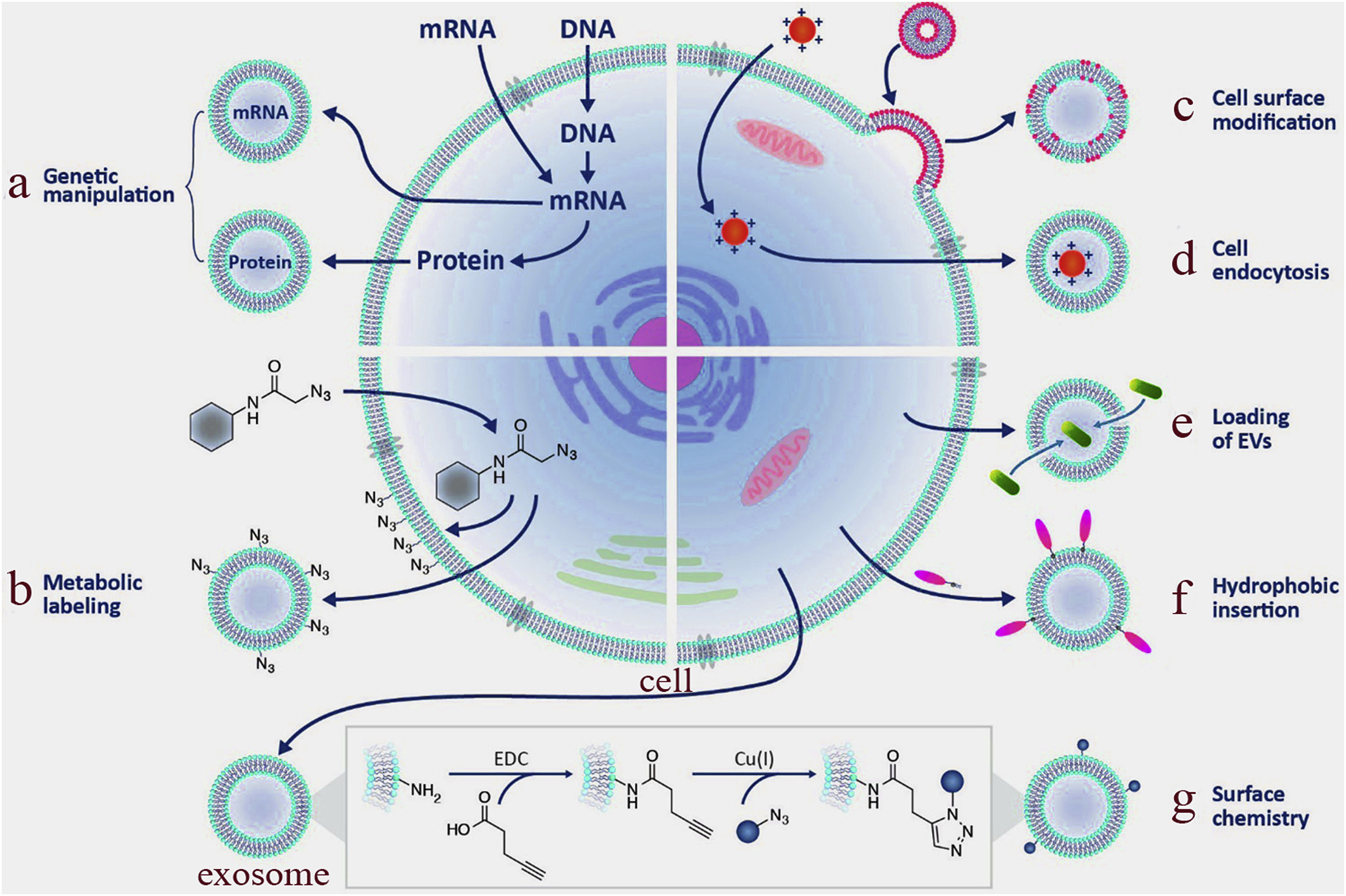Exosome Modification Omics Analysis Service
Exosome modification omics analysis is a high-throughput technology designed to systematically study the molecular modification characteristics on the surface and contents of exosomes. Exosomes are nanoscale vesicles secreted by cells, carrying proteins, RNA, lipids, and other biomolecules. By leveraging high-resolution mass spectrometry (LC-MS/MS) and specific enrichment methods, this approach can comprehensively identify post-translational modifications (PTMs) and other molecular alterations within exosomes, uncovering their critical roles in intercellular communication and signal regulation.
Exosome modification omics analysis service is widely applied in tumor immunology, neurodegenerative disease research, metabolic disease studies, and vaccine development. For instance, in cancer research, this technology can explore how exosome modifications influence tumor immune evasion and therapeutic responses; in neuroscience, it can reveal potential links between exosome modifications and neurodegenerative diseases; and in vaccine development, analyzing exosome modification characteristics can aid in designing more effective antigen delivery systems. By thoroughly characterizing the omics landscape of exosome modifications, researchers can gain a deeper understanding of exosome functions in biological processes and create innovative diagnostic and therapeutic strategies.

Li, M Y. et al. European Journal of Medicinal Chemistry, 2020.
Figure 1. Strategies for Exosome Modification.
Services at MtoZ Biolabs
Based on high-resolution liquid chromatography-tandem mass spectrometry (LC-MS/MS), coupled with advanced sample enrichment and bioinformatics analysis, MtoZ Biolabs’ exosome modification omics analysis service provides comprehensive profiling of molecular modifications in exosomes. This service encompasses key modifications such as phosphorylation, acetylation, and methylation in exosomes. By isolating exosomes from blood, urine, or cell culture supernatants and performing efficient modification enrichment and in-depth mass spectrometry analysis, this service delivers high-sensitivity, high-resolution modification omics data. This includes modification site identification, quantitative analysis, and functional enrichment interpretation, providing accurate and reliable experimental data to support research on the role of exosomes in intercellular communication, disease mechanisms, and drug development.
Analysis Workflow
1. Sample Preparation
Isolate exosomes from bodily fluids (such as plasma or urine) or cell culture supernatants, and verify the sample quality to ensure integrity and purity.
2. Enrichment of Modifications
Apply specific enrichment techniques to extract modified components from exosomes, enabling precise subsequent analysis.
3. Mass Spectrometry and High-Throughput Sequencing
Use high-resolution mass spectrometers for comprehensive quantification and structural analysis of modified proteins, or leverage high-throughput sequencing to deeply profile modified RNA molecules, identifying their modification types, sites, and levels.
4. Data Analysis and Interpretation
Apply advanced bioinformatics tools to process and analyze mass spectrometry and sequencing data, including the identification of modifications, functional annotation of modification sites, pathway enrichment analysis, and potential biomarker discovery.
5. Reporting and Support
Deliver a comprehensive analysis report containing quantitative information on exosome modifications, functional annotations, and potential research directions, providing robust references for subsequent scientific studies, drug development, and clinical applications.
Service Advantages
1. High Sensitivity and Resolution
Leveraging a high-resolution liquid chromatography-tandem mass spectrometry (LC-MS/MS) platform, we precisely detect various post-translational modifications and RNA modifications within exosomes, ensuring high sensitivity and resolution in the resulting data.
2. Efficient Enrichment Strategies
Employing optimized modification enrichment methods enhances the detection capabilities for low-abundance modification molecules, guaranteeing extensive coverage of modification sites.
3. Comprehensive Bioinformatics Insights
By integrating functional enrichment analysis and pathway mapping, our service uncovers the role of exosome modifications in intercellular communication, disease regulation, and biological function.
4. Customized Experimental Designs
We offer tailored analytical approaches aligned with your research objectives, accommodating diverse sample types—blood, urine, cell culture supernatants—and supporting both fundamental research and clinical applications.
Applications
1. Cancer Research
By examining exosomal protein and RNA modifications, researchers can investigate the roles of exosomes in tumor initiation, metastasis, and drug resistance, identifying potential biomarkers and therapeutic targets.
2. Immune Regulation and Autoimmune Diseases
The exosome modification omics analysis service can help uncover how exosomal modifications influence immune cell communication, shedding light on their involvement in inflammatory responses and autoimmune conditions such as rheumatoid arthritis and systemic lupus erythematosus.
3. Neurodegenerative Diseases
Investigate how exosome modifications impact neuronal function, studying pathological changes in conditions like Alzheimer’s and Parkinson’s diseases to facilitate early diagnosis and therapeutic intervention.
4. Cardiovascular and Metabolic Disorders
Exosome modification omics analysis service can analyze the modification status of exosomes in plasma or other body fluids, revealing the regulatory mechanisms behind diseases like diabetes and atherosclerosis and identifying new therapeutic targets.
Deliverables
1. Comprehensive Experimental Details
2. Materials, Instruments, and Methods
3. Relevant Liquid Chromatography and Mass Spectrometry Parameters
4. The Detailed Information of Exosome Modification Omics Analysis
5. Mass Spectrometry Image
6. Raw Data
FAQ
Q1: What types of post-translational modifications (PTMs) can be analyzed?
A1: Commonly analyzed PTMs include phosphorylation, acetylation, methylation, ubiquitination, glycosylation, and hydroxybutyrylation. Additional types of modifications can be included based on specific research requirements.
Q2: How is data accuracy and reliability ensured?
A2: Data accuracy and reliability are ensured through the use of high-resolution liquid chromatography-tandem mass spectrometry (LC-MS/MS) platforms, optimized enrichment techniques, and well-established bioinformatics workflows. This approach provides precise modification site identification, accurate quantification of modification levels, and reliable functional annotations.
How to order?







